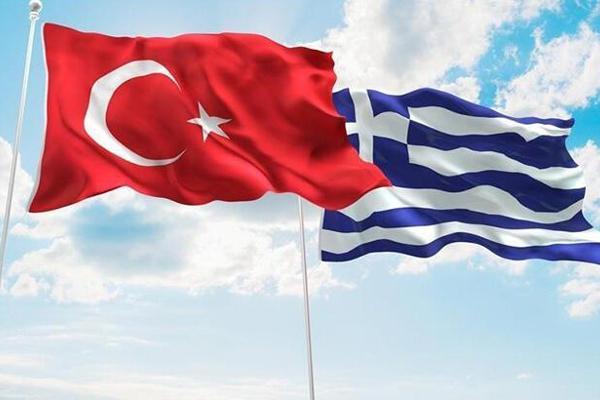Turkish-Greek friendship, only a handshake away!: Op-ed
Faruk Loğoğlu


Though largely unadmitted, the key truth about Turkish-Greek differences over the Aegean and the eastern Mediterranean is that they are solvable. How so? For the reason that there is in store a wealth of wisdom and experience accumulated over many years of arduous exploratory talks and negotiations between the two neighbors.
Very few stones have been left unturned in the search for a solution. The answers are out there. I make this assertion because I have been directly involved in these bilateral encounters at the various stages of my 35-year long career in the Turkish Foreign Ministry. Thus, the obstacle to mutual accommodation, as I suggest and explain later, must be sought elsewhere.
It is not my intention to reveal any state secrets here. But as a former insider, I deem it is time to try at least to put things in perspective so that Turkey and Greece can finally navigate their way to peaceful waters. As neighbors, they both stand to gain a lot from a settlement. Strategic, economic and, social benefits would follow for the betterment of the lives of Turks and Greeks alike. It could also have a positive impact on the question of Cyprus. And Europe would breathe easier.
The technical details of the various issues separating the two neighbors are not germane to my proposition here. A further caveat concerns the problems of the Turkish minority in Western Thrace and the status of the Greek Orthodox Patriarch in Istanbul. These issues too will not be discussed here though any agreement on the Aegean should have a salutary effect on them as well.
Here then is the list of the Aegean issues at hand: the delimitation of territorial waters, of national airspace and of exclusive economic zones; continental shelf; the demilitarized status of certain Greek islands; flight information regions (FIR); military flights; sovereignty over unnamed geographical formations or islets. The recent question of the eastern Mediterranean is basically an extension of differences over the Aegean.
The legal and physical settings are also important to keep in mind. The Aegean is a sea with unique features as it is sandwiched between the two neighbors, home to several thousand islands/islets, most of which belong to Greece but many which are within eyesight of Turkish dwellers on the opposite coastline. It is the “special circumstances” of the Aegean that compelled Turkey not to accede to the U.N. Convention on the Law of the Sea because its terms were too general, too sweeping to take into account the specific configurations of the Aegean. Greece is a signatory to the Law of the Sea and bases most of its Aegean claims on its provisions.
How then are we to solve these problems in such a complicated setting? The appropriate -- and partially tried -- method is rather straightforward. First, the two sides draw up a list of problems, whether they both agree or not on any particular item “as a problem.” Then they agree to divide the list into two parts. One would consist of issues that they would agree to take up bilaterally. The other part would comprise issues which they would agree to take to international arbitration. There is of course not a priori reason why all outstanding issues cannot or should not be settled through bilateral negotiations.
Let’s thus imagine for a moment that Turkey and Greece do finally agree. But that is exactly at that point that the whole deal is likely to come to naught. Why? Because of the ingrained rejectionism on the part of the Greeks and Turks alike, though with different intensities. Any negotiated agreement with Turkey is likely to be branded as a sell-out, if not outright treason by the Greek public and its sustainers. The Greek church and the media are the primary drivers. History and psychology are at play here. Having been under Ottoman rule for many centuries and having lost the war against Turkish nationalists, anti-Turkism is part of the daily diet of the Greek psyche.
Then there are the nationalists in Turkey and others who are not prepared to make any concessions for the sake of a settlement. Nevertheless, the Turks are probably more comfortable with their shared history and an agreement would therefore find easier acceptance by the Turkish people.
What then is the lesson to be learned? That the priority is for the Greeks and the Turks is to educate their publics about the benefits of a mutual settlement in the Aegean. Such an effort would require the concerted collaboration of the media, civil society, and the educational institutions in both countries. Readying the two peoples for peace will take time.
Hence, the announced resumption of exploratory talks between Turkey and Greece (61st session on Jan. 25 in Istanbul – first in five years) is good news. But I suggest that the issue of preparing their people for a negotiated accommodation should be on the top of the agenda. When and if that is accomplished, then enduring Turkish-Greek friendship could only be a handshake away.
*Faruk Loğoğlu is a former Turkish ambassador.
